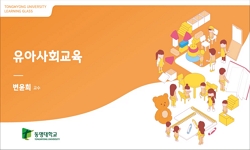The purpose of this study was to examine the effects of STEAM-based mathematical education activities in childhood educational institutes on the mathematical problem - solving abilities and creativity of children 7 years of age. For this, study the fo...
http://chineseinput.net/에서 pinyin(병음)방식으로 중국어를 변환할 수 있습니다.
변환된 중국어를 복사하여 사용하시면 됩니다.
- 中文 을 입력하시려면 zhongwen을 입력하시고 space를누르시면됩니다.
- 北京 을 입력하시려면 beijing을 입력하시고 space를 누르시면 됩니다.
STEAM 기반 수학교육 활동이 유아의 수학적 문제해결력 및 창의성에 미치는 영향 = The Effects of STEAM-based mathematical education activity on young children's mathematical problem-solving ability and creativity
한글로보기부가정보
다국어 초록 (Multilingual Abstract)

The purpose of this study was to examine the effects of STEAM-based mathematical education activities in childhood educational institutes on the mathematical problem - solving abilities and creativity of children 7 years of age. For this, study the following questions were established: Question 1 : 'What effect does a STEAM - based mathematical education activity have on young children's mathematical problem - solving ability?'Question 2 : 'What effect does a STEAM - based mathematical education activity have on young children's creativity?' The study subjects consisted of 40 P Kindergarten children 7 years of age, sampled from 2 different classes. (an experiment group of 20 students; and a control group of 20 students) The experiment group participated in the STEAM based mathematical education activities, whereas the control group carried out ordinary mathematical education activities based on the Nuri-Curriculum. The study was carried out in the sequence of a preliminary tests, a pre - test, an experiment and a post - test. A total of 16 experiment sessions were carried out over an 8 week period, from August 7 to September 29, 2017. During these sessions children were encouraged to produce mathematical education activities twice a week, this amount is based on the STEAM educational approach.The tool used to measure children's mathematical problem - solving, Kim Hyun Joo (2000) who has produced the 5th and 6th kindergarten curriculum (Ministry of Education, 1994) Following this criterion of mathematics curriculum to develop the model (Kwon Young - Rye, Lee Young - Ja, Lee Jung - wook, 1998) for 3·4·5 year old children which Im Eun - Wha (2006) has divided into four regions and used the checklist with rearranged question. In order to test young children's creativity, the author used K-CCTYC (Korean Comprehensive Creativity Test for Young Children), standardized by Jeon - Gyeong Won(2005). Collected data analysis and processing was handled by using SPSS V. 22 for Windows programs. Covariate analysis (ANCOVA) was conducted to find out the effect of the STEAM - based mathematical education activities on children's mathematical problem - solving ability and creativity The Study findings are as follows:First, the mathematical problem solving abilities of the experiment group who were exposed to the STEAM activities had greater results than that of the control group who did not experience it. It also had positive effects on some sub - areas of mathematical problem - solving abilities, like performing classification and ranking and understanding the basic concept of numbers. However, the program did not have positive influences in other sub areas such as the basic concept of space and experiences related statistic. Second, the creativity of the experiment group who carried out the STEAM - based mathematical education activities was more improved than that of the control group. The score of the experiment group was also more improved in sub-variables of creativity such as fluency, adaptability, imagination and originality as compared to the control group; the difference between both groups was statistically significant. In conclusion, STEAM -based mathematical education activities seem to be effective in the improvement of young children's mathematical problem - solving abilities and creativity. In this vein, it is necessary to continue to carry out a variety of researches on the STEAM education in the future.
목차 (Table of Contents)
- Ⅰ. 서론 1
- 1. 연구의 필요성 및 목적 1
- 2. 연구 문제 5
- 3. 용어의 정의 5
- Ⅱ. 이론적 배경 7
- Ⅰ. 서론 1
- 1. 연구의 필요성 및 목적 1
- 2. 연구 문제 5
- 3. 용어의 정의 5
- Ⅱ. 이론적 배경 7
- 1. STEAM 교육 7
- 1) STEAM 교육의 개념 및 구성요소 7
- 2) STEAM 교육 이론 유형 9
- 3) 우리나라 STEAM 교육 11
- 2. 유아 수학교육 14
- 1) 수학교육 개념 14
- 2) 유아 수학교육의 내용 15
- 3. STEAM 기반 수학교육 21
- 1) STEAM 기반 수학교육 개념 21
- 2) STEAM 기반 수학교육 선행연구 분석 22
- 4. 수학적 문제해결력 23
- 1) 수학적 문제해결력의 정의 및 내용 23
- 2) STEAM 기반 수학교육과 수학적 문제해결력 27
- 5. 창의성 29
- 1) 창의성의 정의 및 구성요소 29
- 2) STEAM 기반 수학교육과 창의성 31
- Ⅲ. 연구 방법 33
- 1. 연구대상 33
- 2. 측정도구 34
- 1) 유아 수학적 문제해결력 검사도구 34
- 2) 유아 창의성 검사도구 36
- 3. 연구절차 38
- 4. 자료분석 49
- Ⅳ. 연구 결과 50
- 1. STEAM 기반 수학교육 활동이 유아의 수학적 문제해결력에 미치는 영향 50
- 2. STEAM 기반 수학교육 활동이 유아의 창의성에 미치는 영향 56
- Ⅴ. 논의 61
- Ⅵ. 결론 및 제언 69
- 참고문헌 71
- 영문초록 85
- 부 록 87












